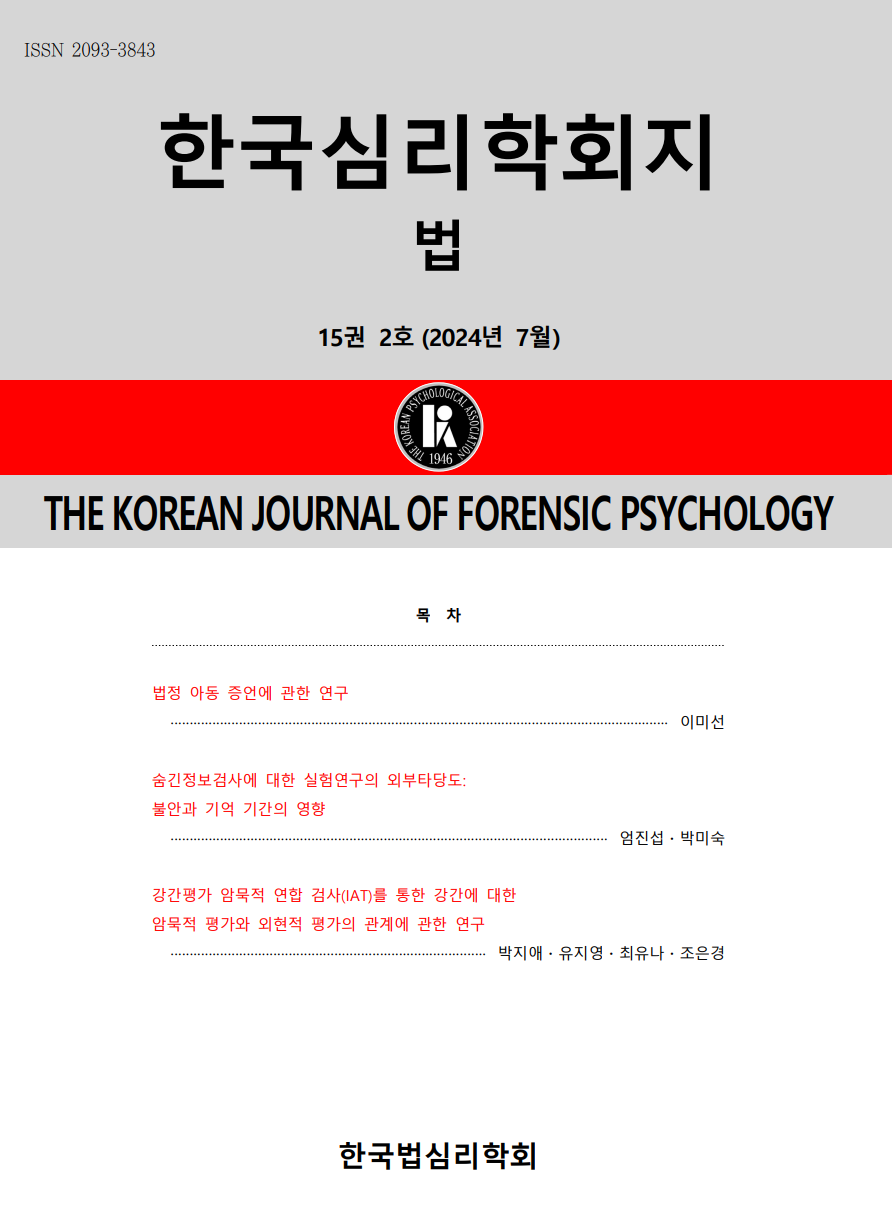open access
메뉴
open access
메뉴 ISSN : 2093-3843
ISSN : 2093-3843
Children with intellectual and/or developmental disabilities are more vulnerable to abuse and maltreatment than their typically developing peers and yet their participation in the criminal justice system in rare. Children with mild to moderate intellectual disabilities could recall useful information in the forensic context. There have been, however, few overviews in Korea with respect to the characteristics and capacities of children's testimony with intellectual disabilities and/or developmental disorders in forensic context. Thus, this paper examines the types of additional factors that might need to be taken into account for children with intellectual disabilities and whether these may influence the quality of children’s testimony based on the recent literature published on abroad. It should be guided and be helpful for further researches, particularly in terms of assessing the performance of children with specific developmental disorders including Down Syndrome, Autism Spectrum Syndrome, and Williams Syndrome, would consolidate our knowledge and provide professional practitioners with an empirical basis in order to structure their investigative interviews with children depending upon their particular profile of abilities and disabilities in reporting what they had personally experienced or witnessed.